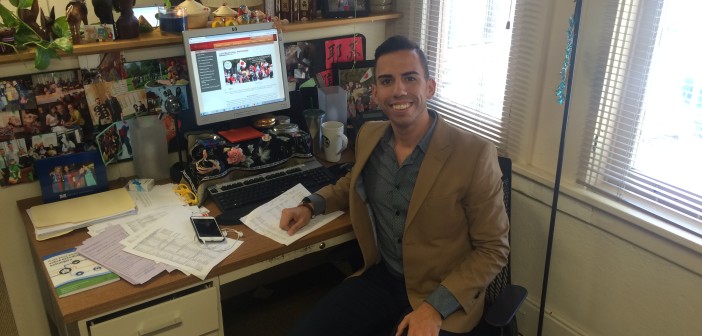North Central College’s Office of International Programs was established in 1994. Now, 21 years later, the college has one of its largest numbers of international students, with exactly 99 students from across the world here this fall.
The 99 international students enrolled into North Central College are a very diverse group, hailing from Sweden, to Rwanda, to Honduras and everywhere in between.
One of eight students seeking a first year degree is Steve Martin Fanega from Thailand, who chose North Central College because his sister is a junior at North Central, and because he was impressed with the computer science program.
Fanega’s transition to North Central wasn’t too difficult because he went to a “school with an American curriculum.” Fanega added that, since North Central is a smaller institution, he feels “as close to the professors” at North Central College as he felt “to the teachers in high school.”
The international student adviser, Jesus Velasco, explained how smaller institutions are more accommodating for international students.
“It is a struggle for a lot of international students at [the University of Illinois Urbana-Champaign].” He continued by saying, “that’s one of the schools with the highest number of international students in the entire country, but, at the same time, their students don’t get the same experience and attention that international students get here.”
Velasco is hands-on with most of the international students that attend North Central and his work with the students sometimes continues even after the students graduate. “(I’m) working with about 115 international students because, after an international student graduates, they are technically still under North Central College’s immigration licensing,” so he still has to oversee all of their activity.
Feeling homesick is a common problem for students going away to college, even if the college is in the same state as their family. That homesickness can be amplified when students go away to a completely different country.
Fanega mentioned that one reason he picked North Central was because he has a sibling already attending the college, but he also spoke on how tough it is to be an international student because he and his sister are not able to go home every break to be with their family.
“The expense to travel back to Thailand and back here would cost my family great, in terms of money,” said Fanega.
Most people who went to summer camp as a child have experienced the first day jitters, not wanting their parents to leave them in some strange place. Fast-forward to the last day, when they are sad to leave their new friends behind and go back home with their parents. After acclimating yourself to a certain environment, struggling to just walk away from it is understandable.
While Fanega is only a freshman in college, he has accepted the fact that he will not be able to see his family as much as he would like, and is already thinking of possibly making America his home later in life.
“I can see myself making the U.S.A. my home post-graduation,” said Fanega. The aspiring computer scientist continued, “I believe I would find a better paying job here than anywhere else.”
Staying in America after graduation is not as easy as it sounds for international students. Velasco explained that there’s a difficult process for students to find work in America post-graduation. “Right now we have about 15 students doing optional practical training,” said Velasco. Optional practical training is covered in the student visa and gives students the opportunity to legally work in America for one year after graduation.
“During their senior years, we work on students’ resumes and help them apply for jobs because they have to find a job within 90 days after they graduate,” Velasco said. He went on to explain that “Students can only work for 12 months, unless they get sponsored by a company; sponsorship is an H-1B visa. The application costs $2,500, which the company usually pays for, so most companies try to sign on students for three to five years to cover the cost.”

